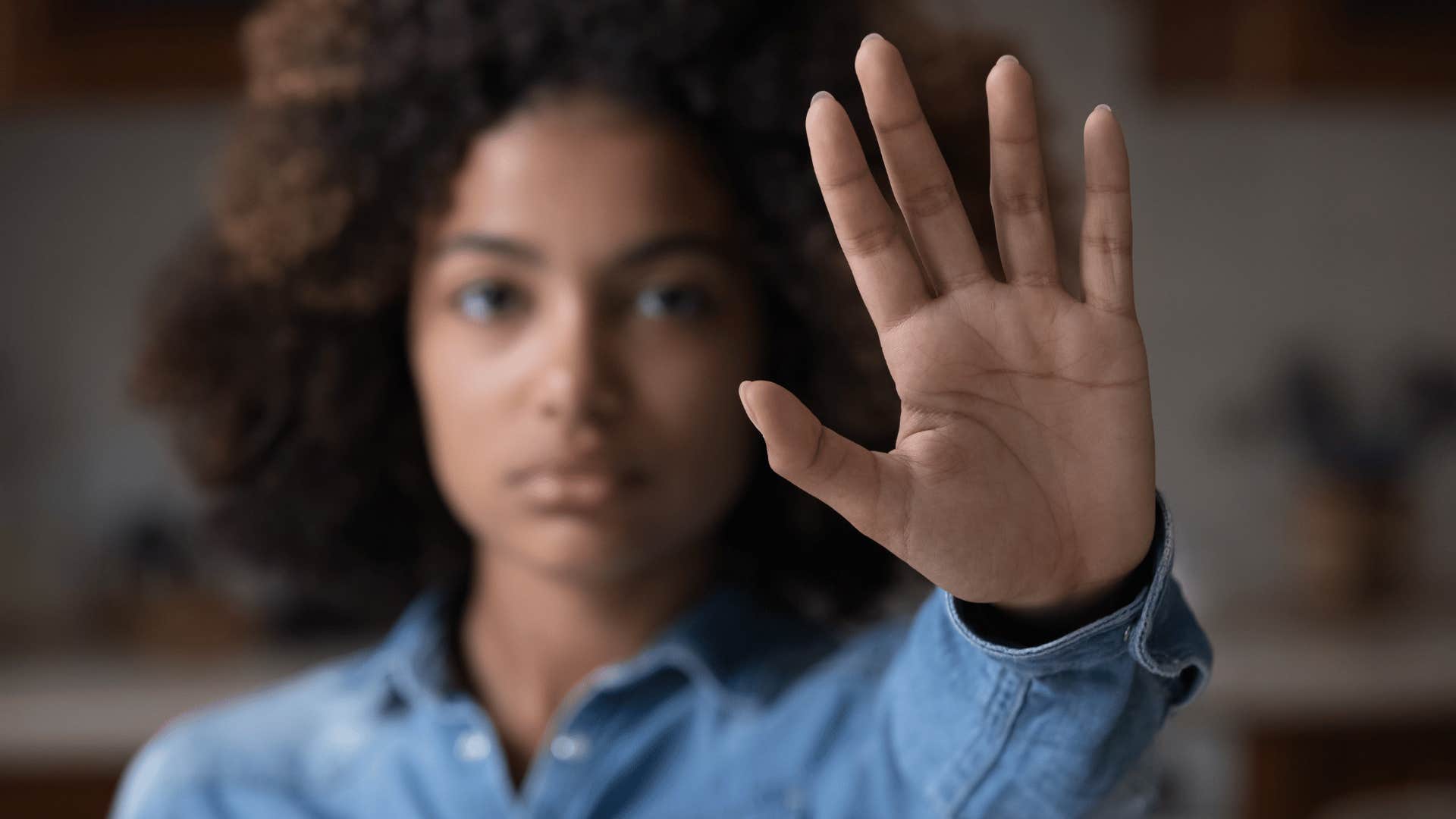10 Harsh Realities About Being Introverted That No One Warns You About
The world can be more overwhelming for introverts.
 Seth Doyle | Unsplash
Seth Doyle | Unsplash Being an introvert doesn’t matter how much you like spending time with other people. Introverts can have some of the most profound and meaningful friendships.
Introversion is not an insult; it's just a different way of deriving energy. The most important thing is learning to use your introverted differences to your advantage — here are the harsh realities about being introverted nobody warns you about.
Here are the harsh realities about being introverted that no one warns you about:
1. Introverts have a much livelier internal experience
 Yuri A / Shutterstock
Yuri A / Shutterstock
Don’t feel bad about needing less external stimulation and fewer intense experiences than others. Introverts generally require less external stimulation than extroverts.
This means they tend to feel overstimulated in environments with high levels of sensory input, such as loud noises or large social gatherings, and instead thrive in calmer, quieter settings.
Eysenck's theory of personality often explains this concept, positing that introverts have a naturally higher level of internal arousal, making them more sensitive to external stimuli.
2. Being introverted is not the same thing as being shy
 fizkes / Shutterstock
fizkes / Shutterstock
You have the potential to be a very effective communicator with practice. Introversion and shyness are distinct concepts. Introversion is a personality trait characterized by a preference for solitary activities and lower stimulation needs.
At the same time, shyness is primarily driven by fear of negative judgment in social situations. Someone can be introverted without being shy, and vice versa. However, a 2021 PLoS One study concluded that there can be an overlap between the two traits, as many shy people may also be introverted.
3. Introverts may become overwhelmed with the world quicker than others
 fizkes / Shutterstock
fizkes / Shutterstock
You need to maintain good mental health habits, namely in understanding that being overwhelmed comes from thoughts, not people and things. Meditation and taking action are the best antidotes to ‘overthinking.’
Society often values extroverted traits, leading to expectations that can be stressful for introverts. A 2020 study highlighted that social gatherings, networking events, and group activities can be exhausting, leaving introverts feeling drained and overwhelmed. Their big challenge is not to feel like outsiders in their own culture.
4. Introverts shouldn't hide behind the label
 Yuri A / Shutterstock
Yuri A / Shutterstock
It’s a helpful guide, but you needn’t be defined and therefore limited by it. We all have extroverted and introverted qualities. A label is there to be transcended.
The psychology behind attaching to the introvert label can stem from a desire for self-understanding and a sense of belonging to a group. However, a study published by the University of South Carolina concluded that this attachment can also have negative consequences if it becomes overly rigid.
For example, it can cause individuals to misinterpret their needs and limit social interaction due to the perceived expectations of being an introvert. This can sometimes be linked to underlying attachment styles, particularly an avoidant attachment, where people may prefer solitude and limited social contact, further reinforcing the introvert label.
5. Being an introvert doesn’t mean you're destined to a life in a remote cabin
 fizkes / Shutterstock
fizkes / Shutterstock
You simply need more time to process human interaction and other stimulations, and that’s okay. You’re not weak — you’re just more acutely receptive to environmental input, which makes you awesome. Find a way to love this about yourself.
Living alone appeals to introverts because it provides dedicated, uninterrupted time for self-reflection, personal pursuits, and energy recharge. They often feel drained after social interactions and thrive in quiet, solitary environments where they can be fully themselves without external stimulation.
A study published by the Pew Research Center explained that while many introverts enjoy solitude, some may still value close relationships and social connections, even if they need significant alone time.
6. Introverts shouldn't be pressured into doing things that don't align with their energy
 fizkes / Shutterstock
fizkes / Shutterstock
Introverts should not let others pressure them into activities that don't align with their natural inclinations. A 2020 study concluded that this can lead to significant downsides, such as increased stress, burnout, decreased productivity, compromised mental well-being, and a diminished sense of self.
By prioritizing their needs for solitude and focused energy, introverts can leverage their strengths in deep thinking, creativity, and quality work, ultimately leading to greater fulfillment and satisfaction.
7. Introverts spend a lot of time alone, but shouldn't use it as excuse to become isolated
 Jacob Lund / shutterstock
Jacob Lund / shutterstock
You need regular social interaction, and you will find being social is something you can grow to enjoy in small measures.
Using alone time as an excuse for complete isolation can be detrimental to mental and physical health, as prolonged social isolation is linked to increased risk of depression, anxiety, cognitive decline, weakened immune system, and even higher mortality rates, highlighting the importance of maintaining social connections even when seeking solitude.
A 2022 study explained that taking intentional periods of solitude can be beneficial for self-reflection, relaxation, and recharging, but it should be balanced with regular social interaction.
8. Introverts often feel nervous but that doesn’t mean something is ‘wrong’ with them
 Yuri A / Shutterstock
Yuri A / Shutterstock
You can practice doing what you fear until your nerves are greatly minimized. Feeling nervous is a normal physiological response to perceived threats, and experiencing occasional nervousness does not necessarily signify a mental health issue.
It's a natural part of the body's fight-or-flight response, designed to prepare you for challenging situations. A study published in Social Psychological and Personality Science explained that it can be adaptive in specific scenarios and doesn't automatically imply something is wrong with you. Feeling nervous before a big presentation or a first date is expected, as these situations can naturally trigger a stress response.
9. An introvert's tendency for worry and rumination is higher than others
 Yuri A / Shutterstock
Yuri A / Shutterstock
For introverts who worry, make daily walks a non-negotiable mental wellness practice, which will make you more creative at the same time. Introverts tend to exhibit a higher propensity for worry and rumination due to their natural inclination to focus inward.
This inclination often leads to overthinking and dwelling on negative thoughts. When faced with social situations or personal challenges, brain activity increases in areas like the frontal cortex.
A 2022 survey study explained that this area is responsible for self-reflection and analysis, which can contribute to this tendency. While the tendency towards rumination is more prevalent among introverts, not all introverts experience significant levels of worry or overthinking.
10. Being introverted often means being highly attuned to things most don’t notice
 simona pilolla 2 / Shutterstock
simona pilolla 2 / Shutterstock
Don’t turn away from these abilities, whether it’s expressing yourself powerfully through writing, using your intuition for people as a counselor, or having an eye for detail as an inventor. Introverts tend to exhibit a higher level of self-awareness than extroverts.
This is often due to their inclination to reflect deeply on their thoughts, emotions, and behaviors, leading to a more thorough analysis of their internal world.
A 2023 study showed that introverts' frontal lobes, regions associated with critical thinking and self-reflection, are more active.
Alex Mathers is a writer and coach who helps you build a money-making personal brand with your knowledge and skills while staying mentally resilient. He's the author of the Mastery Den newsletter, which helps people triple their productivity.

